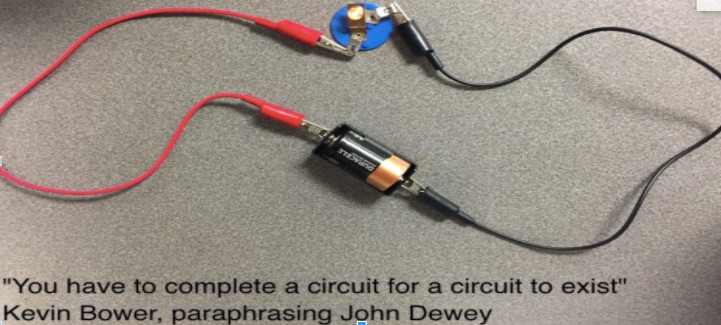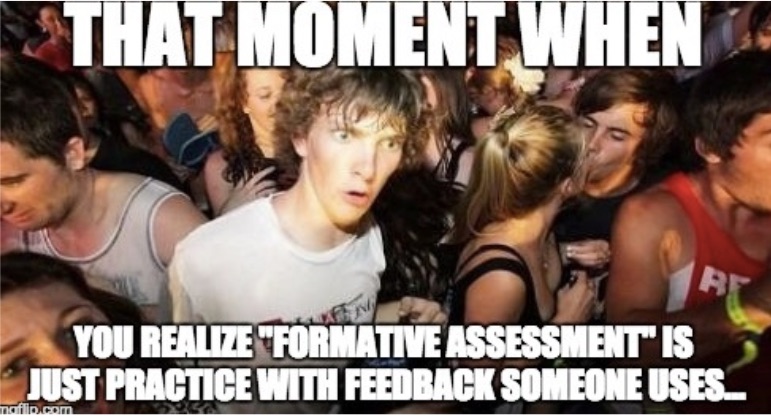I can’t believe I’m saying this, but one of the most important things I’ve read about education recently comes from the CEO of an educational technology company.
I usually approach educational pronouncements from ed. tech. companies with skepticism. That may not be fair – there are a lot of great teachers and smart folks who work in ed. tech. – but often what I see coming from those sources seems to be breathless excitement about something that will “save” education, “revolutionize” learning, or (worse) bring the “outdated industrial age education model into the 21st century.”
The underlying principles of teaching and learning don’t change much over time, and they don’t need “revolutionizing.” I love learning and talking about educational technology, but it’s just a tool like the other tools teachers and students use. There are many COOL tools (my favorite lately = PearDeck – I’m very excited to start exploring how to use that) but I think we should doubt anyone who claims that this or that new technology is “the answer” to supposed problems in education.
And that’s why I’m surprised at how much I love this “Confession and Question about Personalized Learning” from Larry Berger, CEO of Amplify (reproduced in Frederick Hess‘s blog). In the confession, Larry Berger describes a “conversion experience,” and I think it’s remarkable and important.
Here’s my favorite quote: “Until a few years ago, I was a great believer in what might be called the “engineering” model of personalized learning, which is still what most people mean by personalized learning…I spent a decade believing in this model—the map, the measure, and the library, all powered by big data algorithms. Here’s the problem: The map doesn’t exist, the measurement is impossible, and we have, collectively, built only 5% of the library… So we need to move beyond this engineering model. Once we do, we find that many more compelling and more realistic frontiers of personalized learning opening up. Which brings me to the question that I hope might kick off your conversation: “What did your best teachers and coaches do for you—without the benefit of maps, algorithms, or data—to personalize your learning?”
That’s a BIG admission, and I admire Mr. Berger for overcoming what must have been considerable confirmation bias, etc. as he worked toward this realization. It would have been in his best interest to just keep going on the path of “engineering” personalized learning, but I think he’s absolutely right: the people who think that learning can be carefully engineered and “personalized” in the sense of “automation” will continue to struggle. John Dewey said that learning is inherently “relational,” that social interactions are integral to real educative experiences, and I think he’s right. I’m glad Mr. Berger found his way back to that idea, and I’m excited to see what he does with this realization.

